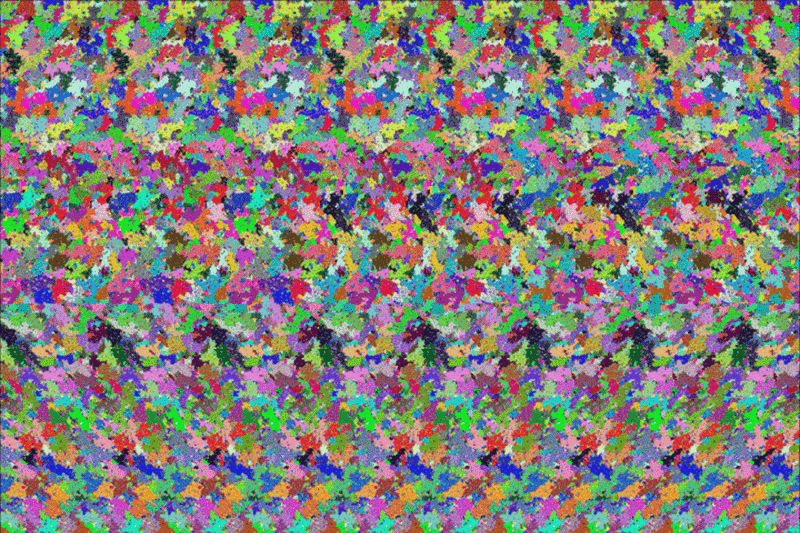Credit & Copyright: E. Winfree,
K. Fleischer, A. Barr et al.
(Caltech)
Explanation:
Is this picture worth a thousand words?
According to the Holographic Principle, the most
information you can get from this image is about
3 x 1065 bits for a normal sized computer monitor.
The Holographic Principle, yet unproven, states that
there is a maximum amount of information content
held by regions adjacent to any surface.
Therefore, counter-intuitively, the information content
inside a room depends not on the volume of the room but
on the area of the bounding walls.
The principle derives from the idea that the
Planck length, the length scale where
quantum mechanics begins to dominate
classical gravity, is one side of an area
that can hold only about one bit of information.
The limit was first postulated by physicist
Gerard 't Hooft in 1993.
It can arise from generalizations from seemingly
distant speculation that the information held by a
black hole is determined not by its
enclosed volume but by the surface area of its
event horizon.
The term "holographic" arises from a
hologram analogy where three-dimension images are
created by projecting light though a flat screen.
Beware, other people looking at the
above image may not claim to see 3 x 1065 bits --
they might claim to
see a
teapot.
1999 2000 2001 2002 2003 2004 2005 2006 2007 2008 2009 2010 2011 2012 2013 2014 2015 2016 2017 2018 2019 2020 2021 2022 2023 2024 2025 |
Yanvar' Fevral' Mart Aprel' Mai Iyun' Iyul' Avgust Sentyabr' Oktyabr' Noyabr' Dekabr' |
NASA Web Site Statements, Warnings, and Disclaimers
NASA Official: Jay Norris. Specific rights apply.
A service of: LHEA at NASA / GSFC
& Michigan Tech. U.
|
Publikacii s klyuchevymi slovami:
Holographic principle - black hole - golografiya - chernye dyry
Publikacii so slovami: Holographic principle - black hole - golografiya - chernye dyry | |
Sm. takzhe:
Vse publikacii na tu zhe temu >> | |
